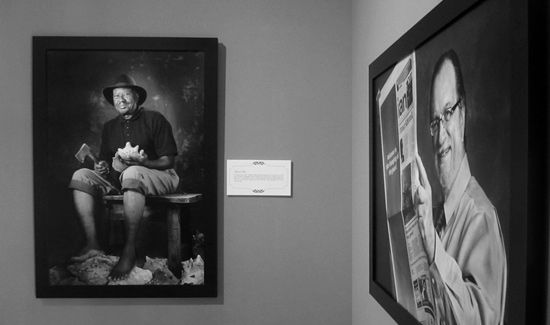I believe the call by Bahamians for a return of “hanging”, often invoking emotive language in our native vernacular, in the following YouTube video, “Caribbean Crime Wave – The Bahamas”, is merely a reaction to the horror of the proliferation of senseless killings across our once peaceful island nation.
However, as I have stated in an earlier post, the barbaric practice of state sanctioned executions is simply “too little, too late”. While appearing to be a “quick fix”, the death penalty does not address the antecedents or the root causes of crime in our society.
The reality is that crime is already out of control and innocent lives have been lost. So, despite the exorbitant calls for “hanging”, it will neither bring any of the murdered victims back to life, nor, at the very least, serve as a deterrent. Case in point, the State of Texas, which has the highest executions in the United States, also boasts the highest murder rate.
In my humble opinion, when politicians simply echo the cries of the masses for state executions, such as the former Minister of National Security, Tommy Turnquest, who appeared in the video, it is nothing more than “smoke and mirrors”.
In fact, as crime has been spiraling out of control, the politicos have been attempting to appease the electorate by promising harsher penalties, such as bringing back the death penalty, and, stronger enforcement of our criminal codes.
However, I believe that this is simply a ploy to silence the public’s demand for urgent action by our national leaders, while concealing their failure to come up with innovative measures to combat crime and implement effective long-term solutions. In the end, our parliamentarians appear inept and clueless as to where to begin to put a significant dent in the high rate of crime grappling our nation today.
This obvious deficit of ideas on how to tackle the scourge of crime, which is destroying our nation, goes to the highest level of government.
In fact, our politicians should be keenly aware that the death penalty is still on the law books in The Bahamas. But, some seem oblivious to the legal challenges this ordinance has presented to our judicial system in recent times.
For the record, former ZNS television news personality, Jerome Sawyer, who appeared in the video criticising the “white” Privy Council, our nation’s highest court, for curtaining hanging sentences handed down by the lower counts, should have enlightened his viewers of the fact that this inhuman form of punishment is a remnant of our “white” colonial masters.
Subsequently, in my opinion, rather than confuse the issue with racial overtones, perhaps it would have been more beneficial to attempt to explain the high court’s legal rationale for their rulings on hanging, which, I believe has absolutely nothing to do with cultural bias.
In fact, most progressive first world countries, including the United Kingdom, have abolished state executions all together. Interestingly, these countries have a lower murder rate, per capita, than The Bahamas. And, as mentioned in the video, even the United Nations, which The Bahamas is a member of, are officially opposed to state executions.
What I found most hypocritical in the video was an appeal for a return to state executions by a well-renown church leader, Miles Monroe, who is described as having a passion for social justice. So, in one breath, he espouses that human life is valuable, and, in the next he gives his arguments to reinstate the inhuman practice of hanging. This seems to be a contradiction in terms. If the general premise is that human life is valuable, then all human life is valuable. Perhaps Bahamian Church leaders would be more effective in their moral teachings if their message was less inconsistent.
Truth be told, crime is a very complex social problem. Accordingly, it requires well-thought out and well-researched multifaceted solutions. And, I believe the government of The Bahamas needs to work more diligently in this regard, thinking outside the box, utilising national, regional, and international resources to formulate viable solutions to our crime problem. Simply put, in my strongest opinion, state executions should not be considered the way forward in The Bahamas to battle our crime situation.
Consequently, in my opinion, the reason why young Marco Archer, whose murder was featured in the video, became the victim of a homicidal paedophile was because the “SYSTEM” had FAILED to protect HIM and society from this dangerous psychopath.
The narrator mentions the fact that the culprit was recently released from prison after serving time for similar crimes. Albeit, the initial public reaction calling for hanging seemed understandable after such a gruesome murder was committed against a child; however, we, as a society, must still remain circumspect about the particulars of the incident.
Psychiatrists are well-aware that the prognosis for the rehabilitation of a homicidal psychopath is extremely poor. Accordingly, laws and policies should have been in place to address these mental health issues whenever such individuals are before the courts and imprisoned. It is the state’s responsibility to ensure that these individuals be provided mandatory psychological rehabilitative services. And, if determined that they remain a danger to society, they should be transferred to a secure mental health facility, rather than simply released back onto the streets to offend again.
In the video, a commentator said that the problem of crime in The Bahamas today goes back some thirty years to the “Drug Trade”. I agree. Obviously, as a society, we failed to foresee the problems associated with our complacency in the transshipment of illicit drugs through our archipelago.
Now that our chickens have come home to roost, we all share in the responsibility for the drastic decline in our morals and societal values over this period. For example, corruption still remains rampant at all levels in our society. Yet, we offer little or no protection to whistleblowers, many of whom are usually victimised.
Interestingly, when I initially joined the Defence Force as its first Education Officer almost two decades ago, I remembered a chief petty officer, who was with the organisation back in the heyday of the drug trade, relating his old “sea stories” and providing some friendly advice: he said, “Sir, see and don’t see, hear and don’t hear, and collect your government paycheck at the end of the month.”
Although he probably had my best interest at heart, I was incensed because as a former Lieutenant in the United States Marine Corps, integrity was the most important trait of a military officer. This, of course, was one of many episodes of ‘’reverse” culture shock, I had experienced after returning home to serve the country of my birth.
Amazingly, successive governments have conducted a number of Commission of Inquiries into the illicit drug trade over the years, but, without any consequences or anyone ever being prosecuted. Conversely, how many times individuals were accused of serious improprieties, whether in the private or government sector, and were simply given a transfer or a lateral move; and, in some cases, were actually promoted following their wrong doing.
Additionally, most perpetrators of “white collar crime” are usually treated vastly differently from the young men in the grassroots areas of New Providence, who may have run afoul of the law for petty theft or small quantities of illegal drugs. The former is often given a slap on the wrist, while the latter often faces the fullest extent of the law.
Lastly, I would be remiss if I failed to mention one of our greatest social challenges, which is “children having children”. Today, in The Bahamas, the majority of births are to single female adolescents, many of whom are having their second child while still in their teens. Consequently, many young males are being raised in single parent households, headed by a female, without a father or a positive adult male role model in their lives. As a result, many of these young men are angry and are simply seeking belongingness— the human emotional need to be an accepted member of a group.
Unfortunately, too many of these young men readily find this “acceptance” from the drug gangs. Sadly, we, as a society, offer few positive social programmes to address the needs of these young men, and, or counter the negative influence of the drug gangs in their communities. Notably, the majority of murders today are gang related and committed by young men in their late teens or early to mid-twenties. In general, when these young men initially become involved with crime, our only solution is to lock them up and throw away the key. No wonder The Bahamas has the highest rate of young men incarcerated, per capita, than any other nation in our region. And, sadly, Her Majesty’s Prison is like a revolving door, with a recidivism rate of about 85 per cent. In the meantime, income inequality continues to grow in our society, even while the World Bank has named The Bahamas the wealthiest nation in the region. WAKE UP MY PEOPLE…WAKE UP!!!
Postscript: While serving as the Education Officer under the leadership of the Defence Force’s first Bahamian Commodore, Leon Smith, with his support, I authored a mentorship programme for wayward young men. Targeting the students from the Ministry of Education’s S.U.R.E. programme, I envisioned these young men as the perfect sample group for a national programme. And, with support from the Defence Force’s Chaplain, Training Instructors, Motor Transport, Food Service, and the Educational Psychologist from that Ministry’s Special Services, the “S.U.R.E Cadet Programme” was a colossal success– even receiving a favourable write-up in The Tribune newspaper. The programme was designed to offer an alternative for young men who were “at risk” of becoming involved in criminal behaviour. And, the best attendance by these “at risk” students was the two days per week they were at HMBS Coral Harbour, which offered them a disciplined environment. Unfortunately, the programme was short-lived, as Commodore Davy Rolle, who succeeded Smith, abruptly ended it shortly after assuming command of the Force, citing a desire to work with more “affluent youngers”. However, I am convinced that if the second Bahamian Force Commander had the foresight to see the tremendous impact of such a programme at a national level, perhaps, we would not be at the juncture, as succinctly stated by one commentator in the video, where, today, “young (er) persons simply have lost all respect”.
Concerned Citizen
Nassau, The Bahamas
Nassau,


